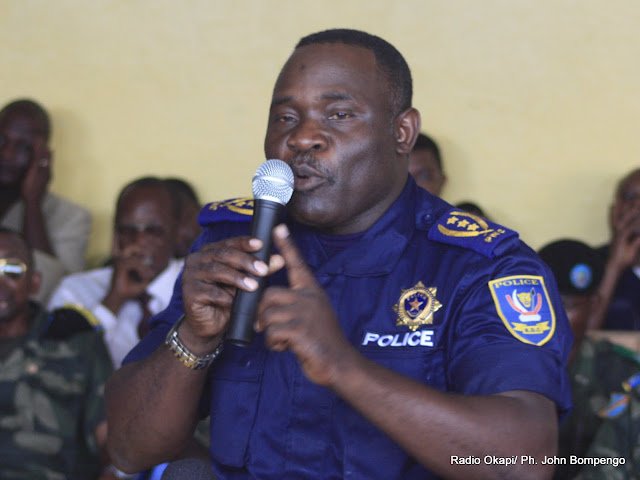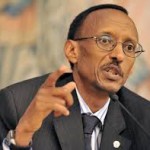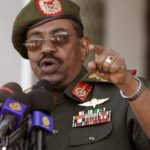The US Treasury placed two top allies of Democratic Republic of Congo President Joseph Kabila on its sanctions blacklist Wednesday, tying both to rising political violence and human rights violations.
The Treasury said both were involved in violently putting down opposition to Kabila and undermining democratic forces in the country.
The Treasury said Major General Gabriel Amisi Kumba, a commander of the DR Congo armed forces, led units that have violently repressed political demonstrations in several provinces including Kinshasha.
The US Treasury said Major General Gabriel Amisi Kumba, a commander of the DR Congo armed forces, led units that have violently repressed political demonstrations in several provinces including Kinshasha.
“Increasing violations of the rights to freedom of expression, association, and peaceful assembly have been reported in the western provinces, particularly in Kinshasa,” the Treasury said.
DRC soldiers “have used excessive force and lethal weapons during demonstrations and political rallies, particularly during demonstrations organized by opposition leaders and civil society actors in January 2015.”
Also hit with sanctions was General John Numbi, a former national inspector in the DRC police and a close advisor of President Joseph Kabila, whom opponents fear is seeking to remain in power after his second term runs out despite a constitutional ban on a third one.
“During the March 2016 gubernatorial elections in the DRC’s four ex-Katangan provinces, Numbi used violent intimidation to secure victories for candidates affiliated with President Kabila’s MP coalition,” the Treasury said.
“Numbi threatened to kill opposition candidates who did not voluntarily withdraw from the race, and on the same day these exchanges purportedly took place, three candidates withdrew.”
The sanctions, which ban US individuals and businesses from dealings with the two men, came days after dozens of demonstrators were killed in anti-government protests in Kinshasha.
“In several areas of the country, defense and security forces have violently repressed demonstrations organized to oppose a new draft electoral law that many fear would allow President Kabila to run for a third term,” the Treasury said.
Kabila has been president since 2001 when he took the position after his father, President Laurent Kabila, was assassinated.
Under a new constitutional regime in 2006, he was elected to the position with a two-term limit, which should expire in December.
However, the government has not yet scheduled new elections, giving rise to fears that Kabila will not step down.
In a statement, Ida Sawyer of Human Rights Watch said the US action “sends a powerful message that there are real consequences for the government’s violent repression of political demonstrations and other serious human rights violations.”
“Taking strong action now could put further pressure on President Joseph Kabila to abide by the constitutional requirement to step down at the end of his term, and help prevent a broader crisis,” she said.








